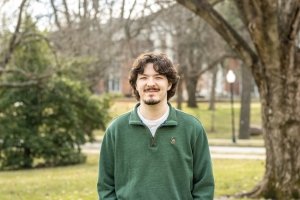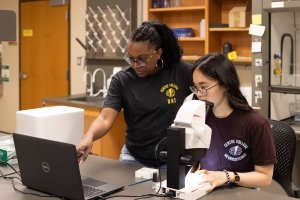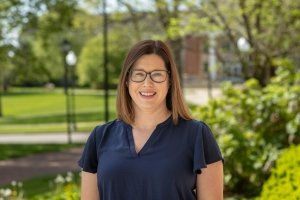Centre students, faculty dig deep into history at Peruvian archaeological site
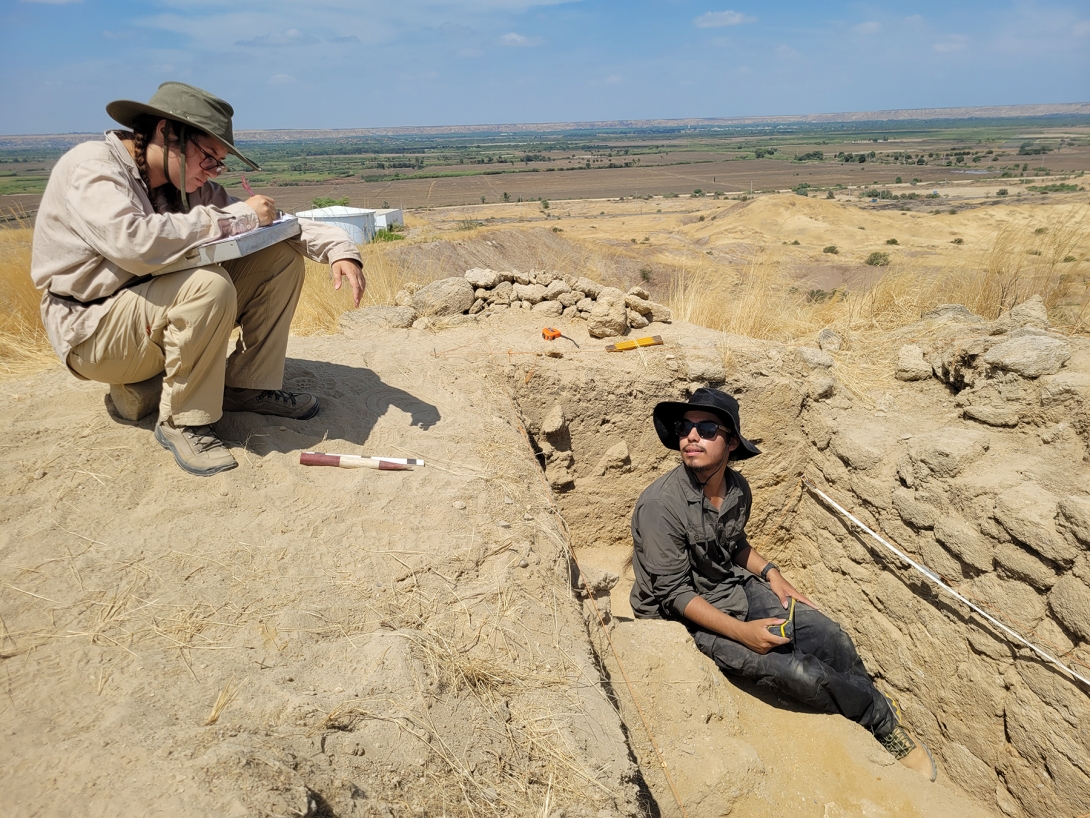
Two Centre College students explored Peruvian ruins and aided in one faculty's research during a summer abroad experience.
One Centre College professor’s ongoing archaeological research project in Peru received a boost this summer.
Grissom Associate Professor of Anthropology Robyn Cutright has focused much of her archaeological research on the Andes region, specifically the north coast of Peru. She was joined this summer by two rising seniors and anthropology/sociology majors, Joseph Falcon and Ayiana Ognan, who took their experiential learning at Centre to South America.
“What I learned in the classroom was only the beginning,” Falcon said. “By being able to participate in this research opportunity, I was able to learn at every step of my experience.”
The archaeological excavation and the mysteries that lay beneath the soil were riveting, he said.
“Whatever that may be dug out of the dirt,’ he said. ‘What is this? Could it be a human artifact?’”
Cutright, Falcon and Ognan formed part of an international team on the ground in Peru, where they linked up with Peruvian scholars and students. Cutright and her colleagues, University of Pittsburgh’s Gabi Cervantes and Sarah Taylor of the University of South Florida, helped secure $10,000 in external grants to fund the season of work.
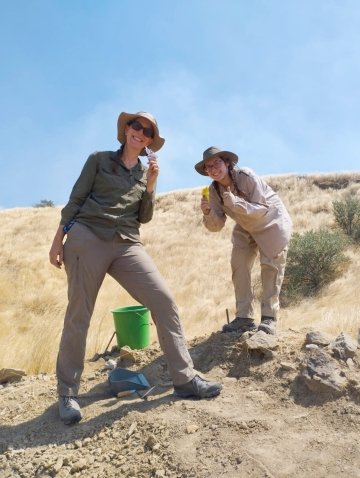
The team worked at an archaeological site (or a frontier outpost, whichever you prefer) administered by the Chimú state, one that controlled costal Peru from the 1100s to the 1400s before being conquered by the Inca.
“This part of Peru has not been studied by archaeologists very extensively, which means that everything we found this season told us something new,” Cutright said. “We were able to see the impact of Chimú conquest on the local landscape and found evidence that local workers put their own stamp on Chimú buildings. We also found a workshop area where people were producing metal and ceramic objects, which tells us that they had an economic interest in administering the area, and a hilltop fortress, which tells us that the Chimú invested a lot of resources in fortifying their northern frontier.
“Overall, this season of research will really move our understanding of Chimú imperialism and Piura archaeology forward.”
Students and Cutright excavated sites and recorded their findings through photographs and drawings. From cooking pots and bones to fingerprints in adobe, the group spent the summer in field research at Monte Lima in Piura, Peru.
“Joseph and Ayiana worked side by side with Peruvian students and professionals, practicing intercultural collaboration and communication skills that are highly valued in today’s global workplaces,” Cutright said. “While gaining proficiency in archaeological field and lab methods, they also had an opportunity to apply creative problem solving and critical thinking skills in a physically and intellectually demanding environment. Hopefully they learned that archaeology is a little more collaborative and intellectually rigorous than Indiana Jones makes it seem!”
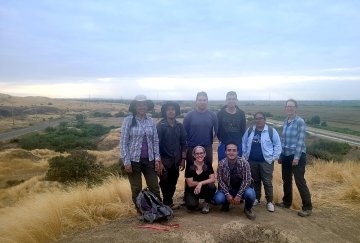
Falcon said his work in the classroom at Centre helped prepare him for the real-world experience in the field.
“My interest piqued with the mention of conducting actual archaeological excavations in Peru, an archaeologically rich country full of history,” Falcon said. “Taking what I have learned from my previous classes, I've been able to apply methods, as well as learning everything that comes with archaeological research from day one to its final day.”
That curiosity not only took the Louisville, Kentucky native to coastal South America, it also drove home the idea that the world is a classroom and life is full of lessons, especially for an anthropologist.
“Learning is not confined just to the classroom, and never should be,” he said. “Learning can take place anywhere in the world, whether it's Japan, Malaysia, Peru or even at your local coffee shop.
“It is up to you to grasp that knowledge that awaits out there.”

